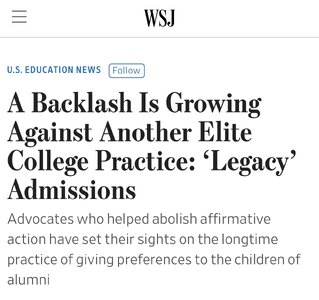University of Virginia Makes Deal With White House to Halt Investigations
The Justice Department had been scrutinizing one of the nation’s premier public universities over accusations of civil rights violations.
The Justice Department had been scrutinizing one of the nation’s premier public universities over accusations of civil rights violations.

www.nytimes.com
“… The deal, which avoids the
hefty fines agreed to by some private, Ivy League colleges, was viewed as something of a victory among leaders of the Charlottesville, Va.-based campus. It was signed one week after Paul Mahoney, the school’s interim president, r
ejected a White House offer of preferential treatment for research funding.
The University of Virginia’s deal was less onerous than other agreements in large part because James E. Ryan had resigned as president of the university in June, according to people familiar with the negotiations. The administration viewed Mr. Ryan as an
obstacle in its bid to root out policies focused on diversity, equity and inclusion.
… Under the
terms of the agreement, Virginia will adhere to the administration’s interpretation of a 2023 Supreme Court decision that ended explicit consideration of race in admissions to higher education as long as that guidance is “consistent with relevant judicial decisions.” Attorney General Pam Bondi laid out in a
memo in July how that ruling, along with federal civil rights law, should be applied to schools receiving federal funding.
Legal experts and higher education officials have argued that schools can still consider race as part of a holistic review of a student’s application. But the Trump administration has adopted a broader view, suggesting that race cannot be considered at all, to justify its attacks on policies and programs that promote racial diversity.
The school will provide quarterly updates to the Justice Department on its compliance with the agreement, avoiding the use of an independent monitor, which some universities have viewed as a potential infringement on academic freedom. In return, the Justice Department will pause investigations into the university’s admissions policies and other civil rights concerns.…”


